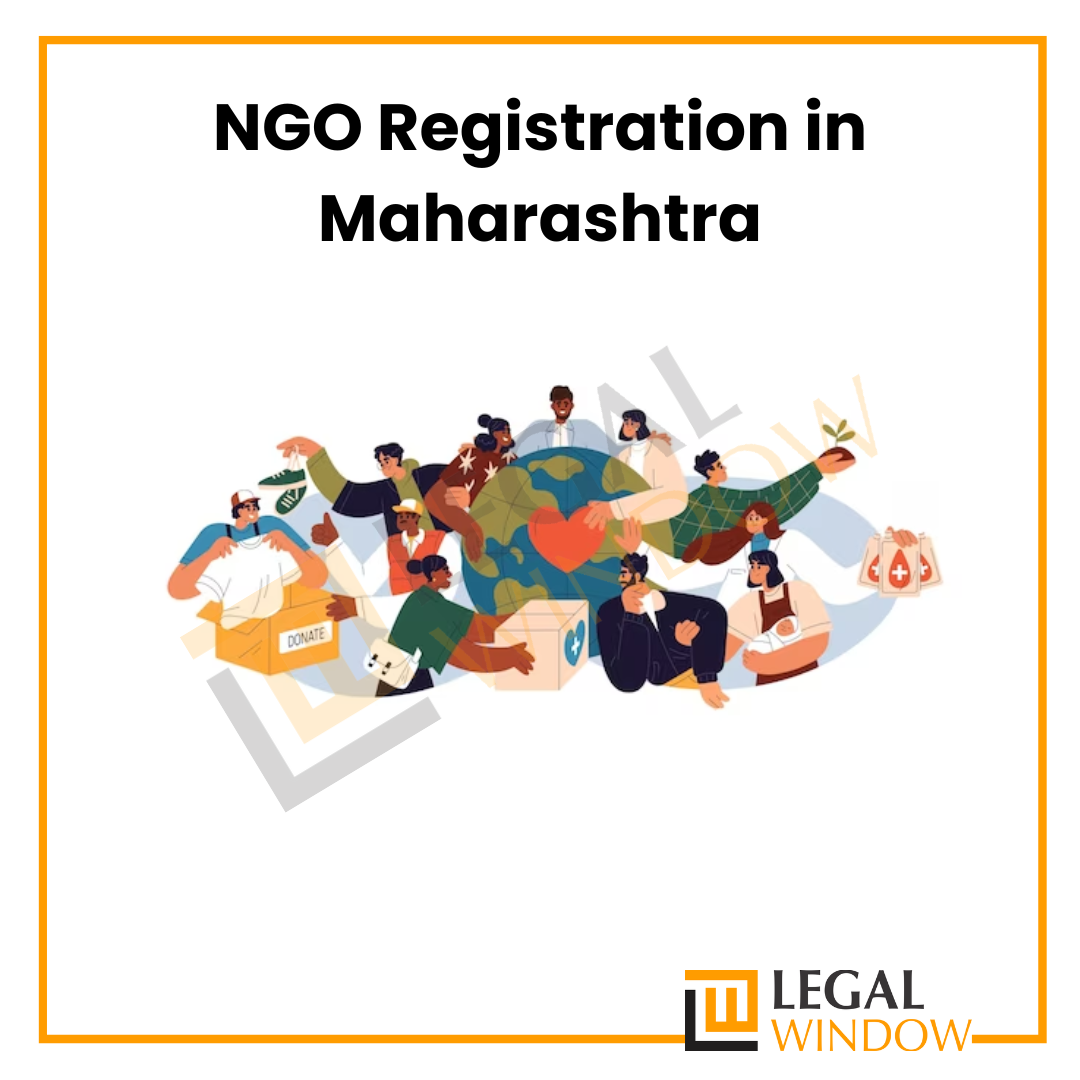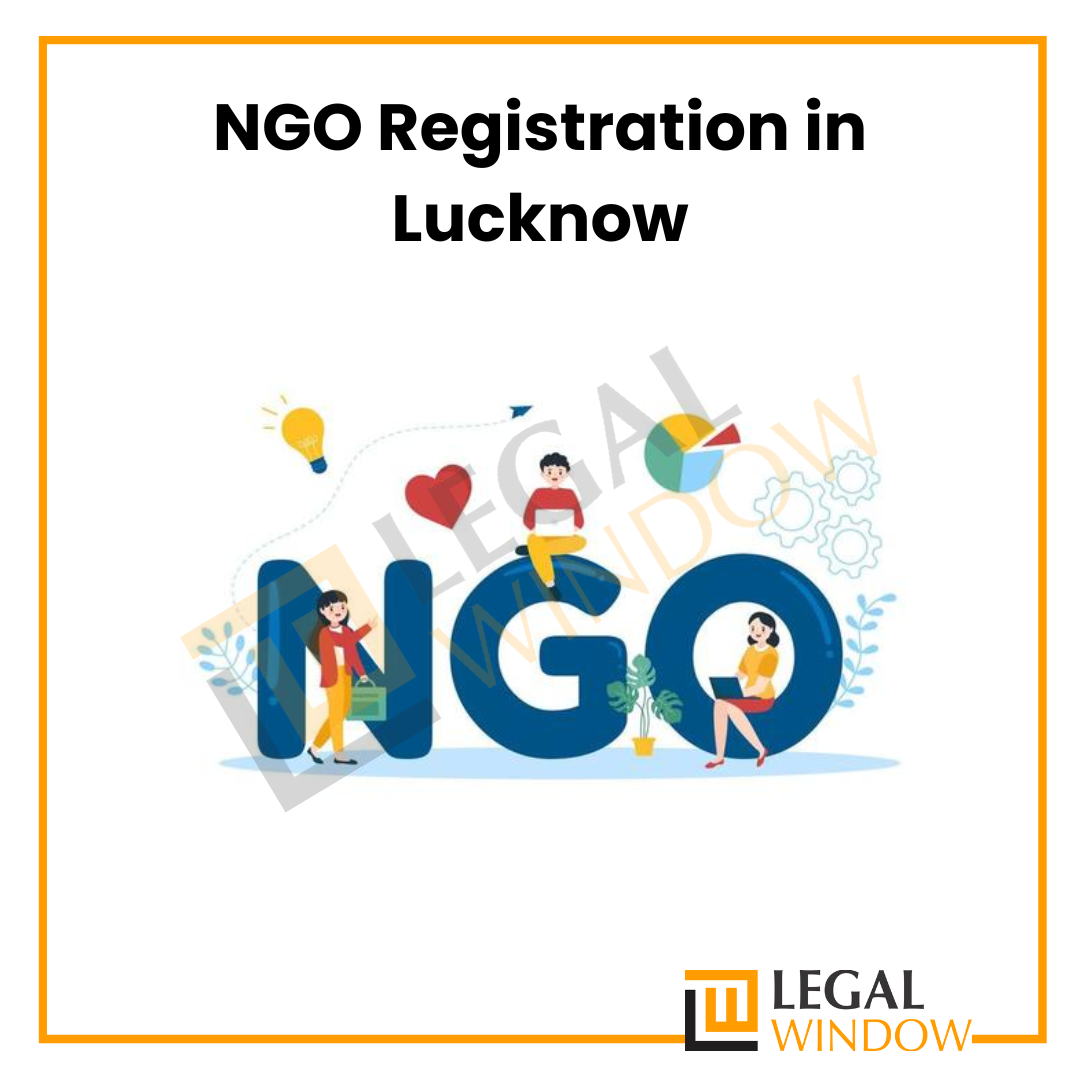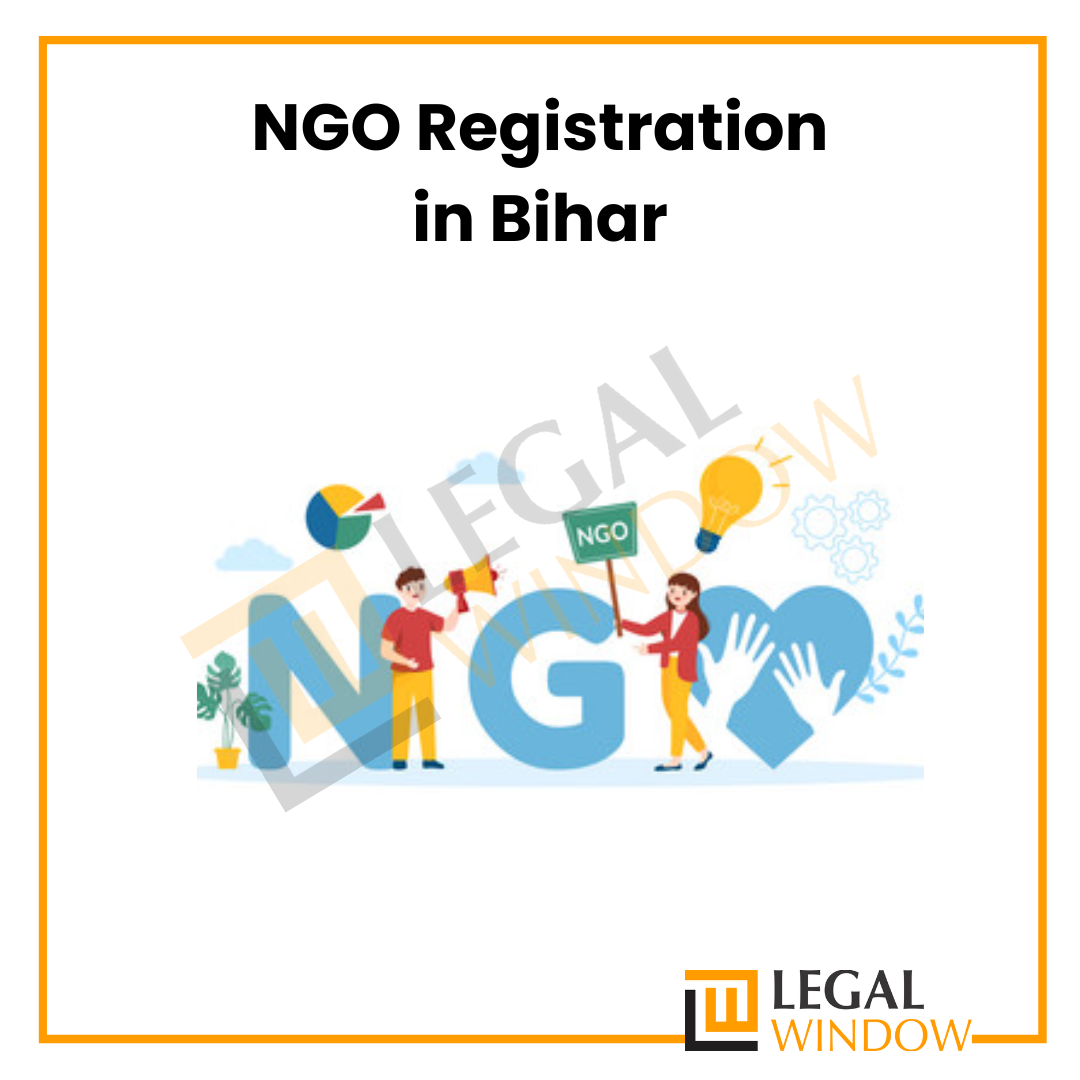NGO Registration
Get all your NGO registration and Compliance services at affordable prices!
Ideal for charitable purpose
For Non-Profit Organisation/NGO
Simple & Secure Online Process
Dedicated Professional
Get Registration in 5-7 Days
Get Post Incorporation Assistance
Introduction
An NGO is a non-government organization with a charitable objective, for the betterment of the society in general. It can be started as a Trust, a Society or a Non-Profit Company [Section 8 Company], depending on the activity you wish to undertake. In India, NGO is an umbrella term for all non-profit organizations including Trust, Society and Section 8 Company. Other names for such not-for-profit organizations are "Sangathan", "Sangh", "Sangam". Income tax exemption is available for all non-profit NGOs. These are sometimes confused with non-profitable companies, which refers to a regular business is not making a profit.
Legal Window can help you with the registration of NGO just by following certain steps and can provide you the deep understanding of this type of entity. You may get in touch with our team on 072407-51000 or email [email protected] for NGO registration and Compliance services.
Benefits of NGO Registration
Legal Status
A registered NGO gains the legal status and becomes accountable for the funds received. For instance, when an individual donates funds to a charitable trust, it is received under the name of the organization and used for the trust’s activities.
Recognition
An organization that is registered as an NGO reinforces the ethical, social and legal norms of our society.
Bank Support
The basic requirement for running an NGO is to have a bank account under its name. In order to open an account, it is mandatory to be registered as a Trust, Society or Section 8 Company.
Tax Exemption
The registration of an NGO is necessary to seek tax exemption from the Income Tax Authority.
Need for NGO Registration
You are recommended to get the NGO Registration done if you are willing to establish a non-profit organization and work with an objective towards the betterment or advancement of any particular section of the society. Getting NGO Registration provides legal authority to the entity and makes it more credible in the eyes of the law and contributors.
Types of NGO Registration
In India one can go for NGO registration in three legally possible ways. As all three NGO models are regulated by separate acts there are many distinct features of every model. One can choose a working model based on their personal requirement and preference, along with scale and diversity of operations.
Trust Registration
Trust Registration is governed by the Indian Trust Act, 1882 where the author (owner) assigns the rights of the property to a trustee so that the beneficiary i.e. the third person can take benefit out of it. The trust is carried out by way of an instrument called trust deed which is formed on a non-judicial stamp paper as per the stamp rates of the different states.
Trust Deed is the core document which defines the reason for formation of trust, details of the author, trustee and the beneficiary. It lays down all the working and functioning of the trust until its closure. The trust deed is registered with the sub-registrar of the concerned jurisdiction.
Documents Required for Trust Registration
The details of Trustees
Name, Father's name, Age, Residential Address, Occupation, Contact Number and Email address with two latest photographs
Address Proof
Any address proof of the Trustee & the Settlers - Voter I.D / Driving license / Passport
Proof of Property
Electricity Bill or House Tax Receipt or Water Bill Receipt or ownership proof of property. If the property is rented, then a Rent Deed duly notarized with Rent Receipts and NOC from the landlord on a Rs.10/- stamp paper is required
Society Registration
A society is an association of individuals who combine using a mutual accord to deliberate, govern and act cooperatively for some communal purpose and benefits for the community. It contributes to the overall development of society and involves some charitable activities like education, health, employment etc.
Society Registration, under The Society Registration Act, in India, contains certain procedures for the sake of society registration & operation. This act was implemented for the purpose of preceding the legal stipulations of society registration for the purpose of charity of literature, fine arts, science or distribution of awareness for knowledge. Further every state has drawn its own act for formation and regulating the societies. The area of scope of work is limited in the state where it is registered.
Documents Required for Society Registration
Aadhar card of all member proposed for registration of society
PAN card of all member proposed for registration of society
Covering letter containing objective behind formation of society
Address proof Owned: Registry Copy and Electricity Bill
List of all members forming society
Address Proof Rented: Rent Agreement and Electricity Bill
Section 8 Company Registration
Section 8 Companies are similar to a Trust or Society as the Societies and Trusts. However, Societies and Trust work as per the State Government regulations whereas Section 8 Company is registered under the Central Government’s "Ministry of Corporate Affairs (MCA)". Being recognized centrally Section-8 Companies/NPOs have higher credibility amongst the stakeholders and donors.
Documents Required for Section 8 Company Registration
Passport in case of Foreign Nationals
Latest passport size photograph of Member and Directors
PAN Card of the Member and Directors of the proposed Company
Identity Proof of the Member and Directors of the proposed Company (Aadhar /Voter ID/Driving License/Passport)
Business Address Proof Owned Property: (Copy of Registry and Latest Govt. Electricity Bill or Water Bill)
Business Address Proof Rented/leased: Rent Agreement, NOC from the Owner, Latest Govt. Electricity Bill or Water Bill)
Address Proof of the Members and Directors (Utility Bill/Telephone Bill/Mobile Bill/Bank Statement not older than two months)
Note:- In case of NRI or Foreign National documents of Directors and Subscribers must be notarized or Apostilled.
NGO Registration Procedure in India
1. Complete the Application Form
You are requested to first fill the simple questionnaire provided by our expert team.
2. Document Processing
At the second step we will be requiring the documents in accordance with the questionnaire filled by you so that we can arrange them as per the requirement and for processing.
3. Drafting of Trust Deed/MOA and AOA/Memorandum of Society
We take care of drafting trust deed/MOA and AOA/Memorandum of Society as per the type of NGO Registration.
4. Paying the Requisite Fees
The next step is to pay a requisite fee for NGO registration.
5. Get Certificate of Incorporation
Once the NGO gets incorporated, we will share all the docs like Incorporation Certificate, MOA, AOA and Digital Signatures.
Recent Notification on NGOs- 2021
As per the recent notification, the Ministry of Home Affairs has extended the validity of registration certificates issued to Non-Profit Organizations under the Foreign Contribution (Regulation) Act, expiring between 29th September 2020 to May 31, 2021.
For NGOs receiving foreign funding it is mandatory to register under the FCRA and the decision is expected to be advantageous for various NGOs and other voluntary entities whose registrations have expired since September 29, 2020.
Further, MHA said it is necessary to administer the FCRA and section 12(6) of the act that specifies that the certificate granted shall be valid for a period of 5 years from the date of issue.
An NGO can take income tax exemption by getting itself registered and complying with some other formalities, but such registration does not endow any gain to the persons making donations. The Income Tax Act 1961 has few provisions which offer tax benefits to the "donors". All NGOs should take the advantage of these provisions to attract probable donors. The person or the organization making a donation to the NGO will get a deduction of 50% from his/its taxable income if an NGO gets itself registered under section 80G.
Related Posts
FAQ on NGO Registration
Both trust and society can do social work as NGOs. The social work you do does not really get affected by whether you register the NGO as a society or as a trust. The main difference between trust and society lies in the controlling body of these two types of organizations. Learn the difference.
Trusts are usually registered at the office of sub-registrar of your area. This is the office where sale/purchase of land property are registered. Societies are registered at the office of the Registrar of Societies of your area. If you don’t have any clue about where to go for registration, I would suggest that you go to the office of sub-registrar / tehsildar etc. and inquire about where to register your NGO.
No, you can start an NGO in a rented property as well. You will need a No Objection Certificate (NOC) from the owner of the rented property.
Yes, a government employee can become a trustee in an Indian trust. See the details here.
There is no explicit restriction on an NRI becoming a trustee in an Indian trust. See the details here.
You cannot take compensation just for being a trustee in a public charitable trust. However, if you’re doing some professional work for the trust, you can take a reasonable compensation from the trust fund. Please note the word reasonable. It means that if you draw more compensation than market rate, that would be illegal and immoral. See more details.
Well, in the registration process, you would need require 2 to 3 three thousand rupees. The amount varies depending on whether you use the services of a professional or you do all the work on your own.








